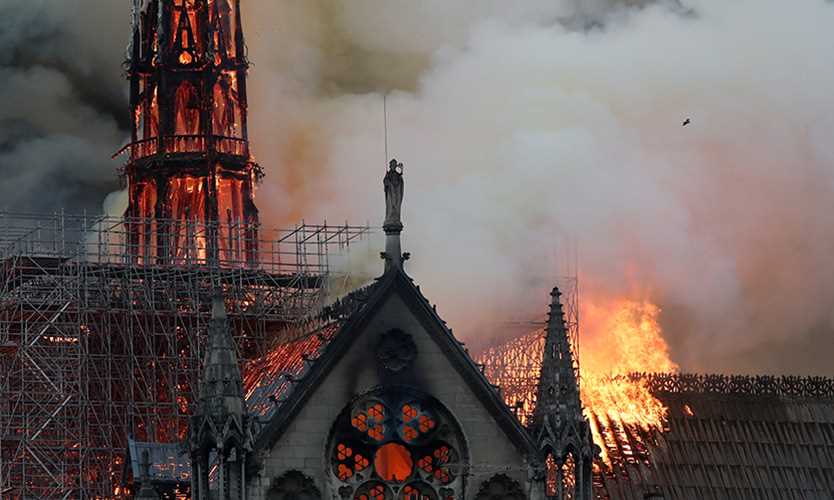Evacuation plan saved most of Notre Dame’s treasures: Insurance adjuster
Reprints
(Reuters) — Some 90% of the priceless relics and art works housed within the Notre Dame de Paris cathedral were saved from Monday’s devastating fire as contingency plans to evacuate the treasures worked, a leading insurance adjuster said Wednesday.
Insurance adjuster Michel Honore, the director of fine art at Sedgwick Claims Management Services Inc., has been given the task of assessing any damage to the cathedral’s “Trésor” or treasure.
The contingency evacuation plan included putting priorities on objects for removal, Mr. Honore told Reuters, adding “the plan itself worked perfectly and was adhered to the letter, and that is why the contents lost is not as severe as might have been feared.”
He spoke by phone from Paris after attending a meeting of adjusters — specialists appointed by insurers to investigate claims on their behalf — at a site close to the cathedral.
Officials have said that emergency workers formed a human chain to whisk items out of harm’s way during the blaze.
Notre Dame’s treasures are made up of 1,000 to 1,200 items including precious metals, traditional church dresses and paintings. More modern items also include a gift to the cathedral from Pope John Paul II.
“One of the first items to come out was the crown of thorns and the remnants of the crucifix. They were on the top of the list and they were taken out in priority in strict application of the plan,” Mr. Honore said.
The crown, made of braided reed brought to France from Constantinople in the 12th century, has been revered as an object of Christian worship for centuries. Remnants of the crucifix refers to relics believed by Christians to be part of the cross where Jesus died.
Mr. Honore said most of the large paintings in the cathedral seemed “to be OK,” but they would need closer inspection by specialist restorers for traces of soot or deposits from the fire or firefighters’ water.
“There is great optimism that the main organ in the cathedral will remain unscathed but again it needs close checking for acidic deposits,” he said.
While most of the valuable items were removed, some had to be left behind, though it was unclear how many.
“The items that could not be removed on the night of the fire are in the process of being checked and wrapped and removed from the premises and are being stored in the Louvre Museum,” Mr. Honore said.
The items at the top of the priority list were relocated to Paris City Hall and will in all probability be taken to the Louvre for safer keeping.
The cathedral is owned by the state, and major European insurers expect France to bear the bulk of the cost of rebuilding.
Two insurers including Axa ART, a unit of AXA SA, have an insurable interest in the art works within the cathedral, Mr. Honore said, adding five adjusters had been commissioned. He did not name the other insurer.
Matters of faith and state were separated by law in France in 1905. Items that predate the law are insured by the state and are not insured on the open market.
With the exception of relics such as the crown of thorns, an inventory is carried out on a regular basis to value the artifacts and in the event that an insured item is destroyed, the insurer would pay out. Insurers would also foot the bill to restore any items that are damaged, Mr. Honore said.
Read Next
-

Insurers expect France to bear Notre Dame rebuilding cost
(Reuters) — Major European insurers expect France to bear the bulk of the cost of rebuilding the Notre Dame Cathedral after a fire tore through the 8-centuries-old Paris landmark Monday.